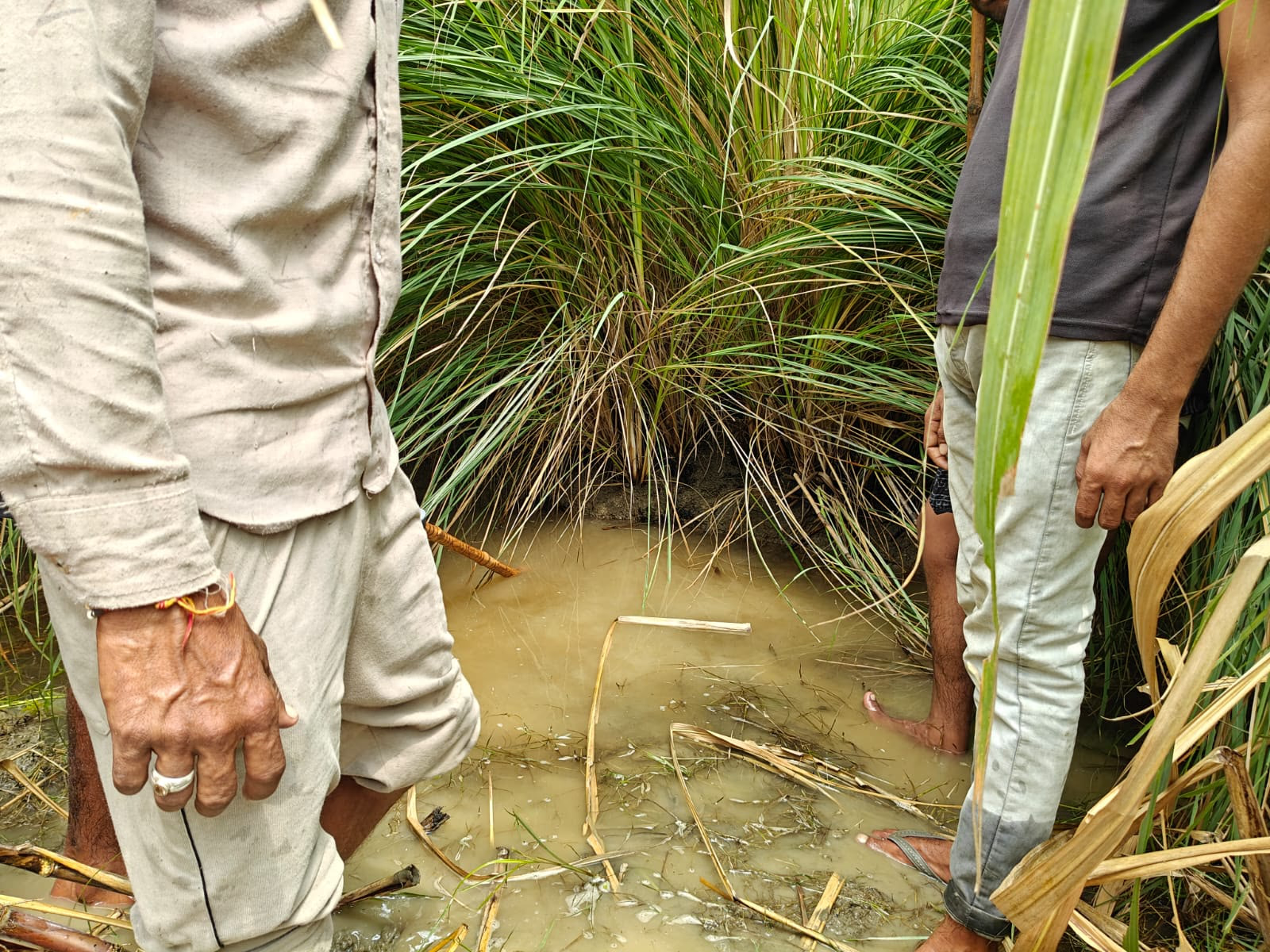In Bahraich, wolves have turned into man-eaters and are attacking humans. The investigative team from Aaj Tak reached Ramua Pur village to probe further. The village revealed a wolf den where an entire pack resided. Villagers claimed that the wolves were seen in the dense sugarcane fields just the day before. When a wolf ventured here, the villagers chased it away by creating a commotion.
At around 9 PM, a wolf appeared near a shop in the village, as reported by the shopkeeper. It later entered the village and injured a goat. Villagers shared that wolves have always been present in the area, but they never targeted human children before. This is puzzling to understand.
Wolves Have Always Inhabited This Area
The locals mention that wolves would previously come and take away goats. Now, these wolves have turned into man-eaters. Why this change happened is still unknown. It's possible that they suffered some damage, hence seeking revenge. The big question is whether their den was damaged or flooded, causing their cubs harm.
Wolves Live in Dens Created in Sugarcane Fields
In Ramua Pur, the wolves used to create their dens amidst sprawling sugarcane fields. These fields are now submerged, and there's no trace of the wolves. During summer and winter, wolves face no issues, but in monsoon, flooding destroys their homes. This happens every year. It remains a mystery why these wolves turned man-eaters this particular time.

Source: aajtak
Den Submerged in Ghaghar River Flood
Villagers reported that wolf cubs were in these dens. A few months ago, when irrigation caused flooding, the cubs ran out. Despite this, wolves returned, and their presence continued. However, flooding in Ghaghar River devastated their habitat, forcing the pack to flee from here.
Why Wolves Are Becoming Man-Eaters
The Forest Department also cited habitat destruction as a key reason for wolves' aggression, turning them into man-eaters. Sanjay Pathak, General Manager of UP Forest Corporation and leader of Operation Wolf, explained that no animal naturally becomes a man-eater or attacks without reason.
Habitat Destruction is a Major Factor
Sanjay Pathak reiterated that habitat loss is the most significant factor. If their areas get flooded, wolves have to leave. An animal doesn’t have bad intentions, but chance encounters happen. If they find easy prey, they might attack again.




